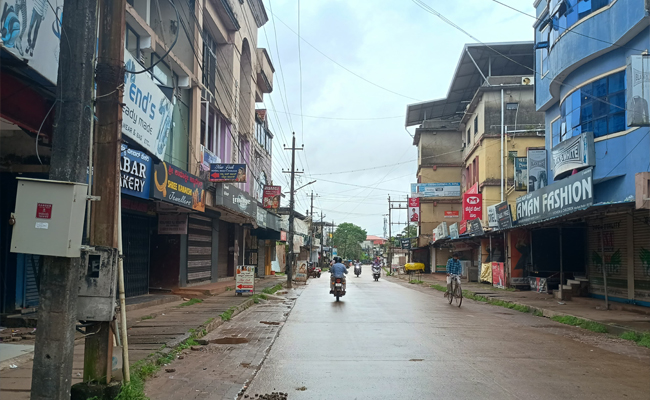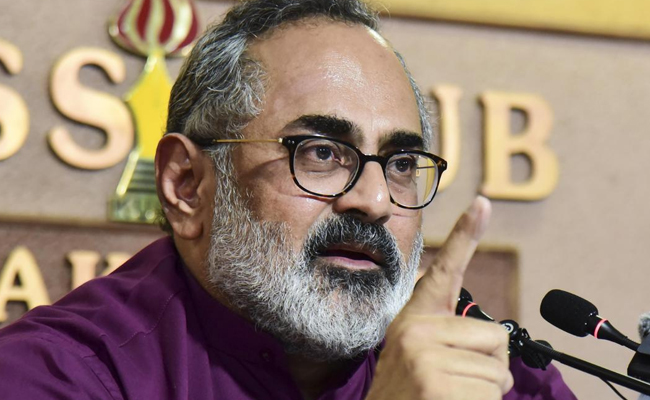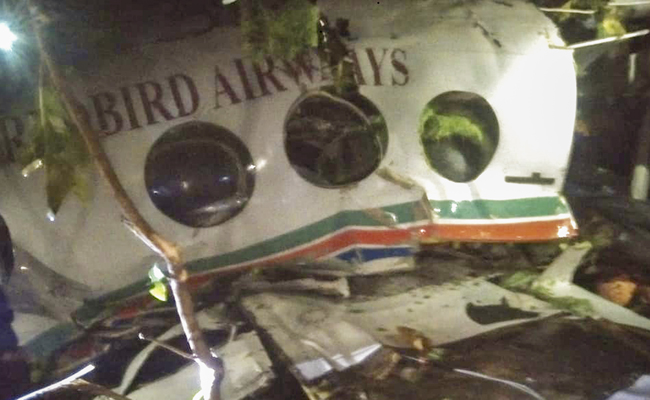Mangaluru: Rachana, the Catholic Chamber of Commerce and Industry, Mangalore is preparing to celebrate its Silver Jubilee on 3 November 2024, marking 25 years of service to entrepreneurs, professionals, and agriculturists. The event will be held at Cordel Hall, Kulshekar, Mangaluru, beginning at 6 PM.
Rear Admiral Nelson D'Souza, Commandant of the Military Institute of Technology in Pune, will serve as the chief guest. NRI entrepreneur Michael D'Souza and Rohan Monteiro, Chairman of Rohan Corporation, will be the guests of honour. The event will be inaugurated by His Grace Archbishop Most Rev. Dr. Peter Machado of Bengaluru, with Mangaluru Bishop Most Rev. Dr. Peter Paul Saldanha presiding.
Rachana President John B. Monteiro, Silver Jubilee Committee Chairperson Marjorie Texeira, and Secretary Vijay Vishwas Lobo will also mark their presence.
The celebration will also feature the launch of the Rachana Catholic Co-operative Society, an initiative aimed at supporting emerging entrepreneurs. A documentary chronicling Rachana’s 25-year journey will be screened as part of the event.
Rachana was founded following a workshop organized by the Catholic Sabha at Bendur Church Hall on 6 September 1998, under the leadership of Maritto Sequeira. This initiative, which brought together over a hundred Catholic business leaders from the diocese, led to the formation of Rachana on 1 November 1998, with its first general meeting held on 8 August 1999. John Alex Sequeira was elected as the association’s first president.
Rachana has played an instrumental role in motivating youth towards self-employment, providing training and industry insights through workshops, and celebrating accomplishments within the community. The organisation conducts regular meetings and events to foster knowledge sharing and growth among members. Since 2003, Rachana has hosted the prestigious Rachana Awards, honouring successful entrepreneurs, professionals, and agriculturists, with around 67 individuals recognised to date.
The current executive committee includes John B. Monteiro as President, Naveen Lobo as Vice President, Vijay Vishwas Lobo as Secretary, Walter D’Cunha as Joint Secretary, Nelson Monteiro as Treasurer, and other committee members dedicated to Rachana’s mission.
The press meet, held today at the Press Club in Mangaluru, was attended by key representatives including President John B. Monteiro, Convenor Marjorie Texeira, and executive committee members.




Let the Truth be known. If you read VB and like VB, please be a VB Supporter and Help us deliver the Truth to one and all.
Judge cites denial of home to Muslim girl, opposition to Dalit women cooking mid-day meals
Hyderabad, February 23, 2026: Supreme Court judge Justice Ujjal Bhuyan has said that despite repeated affirmations of constitutional morality by courts, deep societal faultlines rooted in caste and religious discrimination continue to shape everyday realities in India.
Speaking at a seminar on “Constitutional Morality and the Role of District Judiciary” organised by the Telangana Judges Association and the Telangana State Judicial Academy in Hyderabad, Justice Bhuyan reflected on the gap between constitutional ideals and social practices.
He cited a recent instance involving his daughter’s friend, a PhD scholar at a private university in Noida, who was denied accommodation in South Delhi after her surname revealed her Muslim identity. According to Justice Bhuyan, the landlady bluntly informed her that no accommodation was available once her religious background became known.
In another example from Odisha, he referred to resistance by some parents to the government’s mid-day meal programme because the food was prepared by Dalit women employed as cooks. He noted that some parents had objected aggressively and refused to allow their children to consume meals cooked by members of the Scheduled Caste community.
Describing these incidents as “the tip of the iceberg,” Justice Bhuyan said they reveal how far society remains from the benchmark of constitutional morality even 75 years into the Republic. He observed that while the Constitution lays down standards of equality and dignity, the morality practised within homes and communities often diverges sharply from those values.
He emphasised that constitutional morality requires governance through the rule of law rather than the rule of popular opinion. Referring to the evolution of the doctrine through judicial decisions, he cited Naz Foundation v Union of India, in which the Delhi High Court read down Section 377 of the Indian Penal Code, holding that popular morality cannot restrict fundamental rights under Article 21. Though the judgment was later overturned in Suresh Kumar Koushal v Naz Foundation, the Supreme Court ultimately restored and expanded the principle in Navtej Singh Johar v Union of India, affirming that constitutional morality must prevail over majoritarian views.
“In our constitutional scheme, it is the constitutionality of the issue before the court that is relevant, not the dominant or popular view,” he said.
Justice Bhuyan also addressed the functioning of the district judiciary, underlining that trial courts are the first point of contact for most litigants and form the foundation of the justice delivery system. He stressed that due importance must be given to the recording of evidence and adjudication of bail matters.
Highlighting the role of High Courts, he said their supervisory jurisdiction under Article 227 of the Constitution is intended as a shield to correct grave jurisdictional errors, not as a mechanism to substitute the discretion or factual appreciation of trial judges.
He recalled that several distinguished judges, including Justice H R Khanna, Justice A M Ahmadi, and Justice Fathima Beevi, began their careers in the district judiciary.
On representation within the judicial system, Justice Bhuyan noted that Telangana has made significant strides in gender inclusion. Out of a sanctioned strength of 655 judicial officers in the Telangana Judicial Service, 478 are currently serving, of whom 283 are women, exceeding 50 per cent representation. He added that members of Scheduled Castes, Scheduled Tribes, minority communities, and persons with disabilities are also represented in the state’s judiciary.
He observed that greater representation of women, marginalised communities, persons with disabilities, and sexual minorities would help make the judiciary more inclusive and reflective of India’s diversity. “The judiciary must represent all the colours of the rainbow and become a rainbow institution,” he said.
Justice Bhuyan also referred to the recent restoration by the Supreme Court of the requirement of a minimum three years of practice at the Bar for entry-level judicial posts. While acknowledging that the requirement ensures practical exposure, he cautioned that its impact on women aspirants, especially those from rural or small-town backgrounds facing social and financial constraints, would need to be carefully observed over time.
Concluding his address, he reiterated that the justice system must strive to bridge the gap between constitutional ideals and lived realities, ensuring that the rule of law remains paramount.




